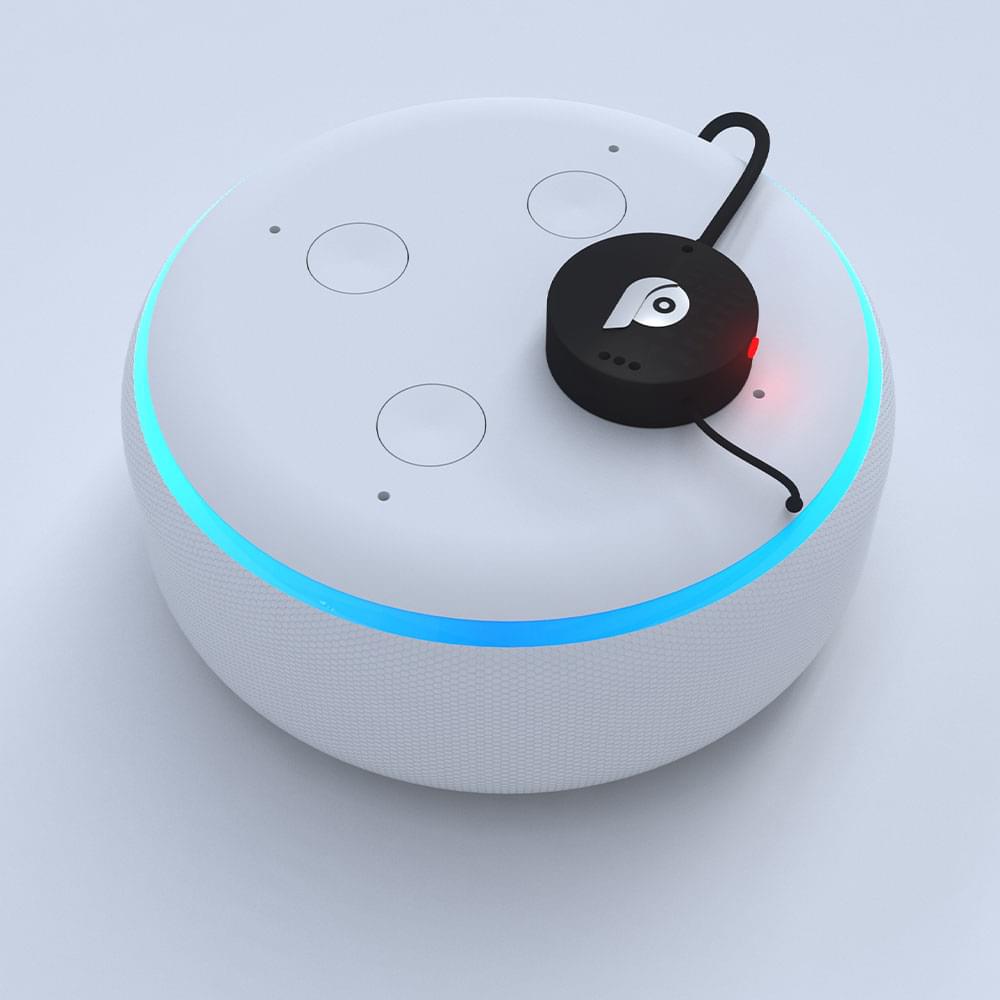With smart home devices proliferating, the secondary effect of privacy is becoming a concern. While a majority of consumers are not paying attention to proper security practices when installing a smart device, unrest is burning in those who are.
Paranoid Inc., a subsidiary to the Alberta-based Pleasant solutions, is extra vigilant on disabling smart homes’ prying ears. To improve the privacy of smart speakers, it has created an attachment that physically blocks the microphone from activating.
Paranoid comes in three configurations. First, there’s the Paranoid Home Button, the most intuitive solution. When plugged in, it holds down the microphone’s mute button unless the user announces the “Paranoid” wake-word. There’s just one caveat: the device must have a physical mute button for the robotic arm to press on. An example of a compatible product is the Amazon Echo Dot.

But it’s Paranoid Home Wave where it gets really interesting. For smart speakers without a home button, users can opt for the Paranoid Home Wave. In what resembles a military operation, the Paranoid Home Wave generates noise and interference to jam the smart speaker’s microphone. The user must give Paranoid’s wake word to stop its jamming and issue the voice command.
For the ultra-cautious crowd, Paranoid offers the Home Max. It isn’t a device, per se, but more of a service where you ship off your smart speaker to be lobotomized. Paranoid techs physically re-routes the speaker’s microphone circuitry through a Paranoid’s device. In the event that the smart speaker receives an update that prevents the Paranoid Home Max alteration from working, Paranoid would simply release a follow-up update that would work around the issue.

In its press release, Paranoid guarantees that Paranoid would never connect to the internet and that it lacks the components to do so.
Paranoid updates are distributed via music files played through any regular speaker. In an email, a Paranoid engineer assured IT Business that the audio data would be encrypted and signed. In addition, the Paranoid module can only receive and not transmit.
Paranoid aims to outfit its attachment to every major brand of smart speakers. They’ll first be available in Canada and the U.S. for $49 each or $129 for a pack of three.
Correction: The original article incorrectly stated that the Paranoid Home Button needed to be physically pressed. Instead, it’s deactivated via voice command. The article has been amended to reflect the update.





